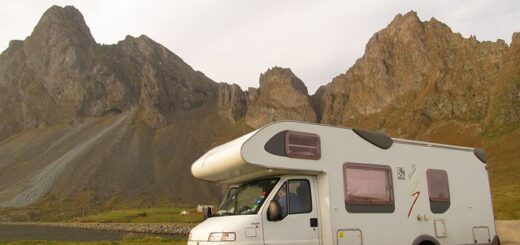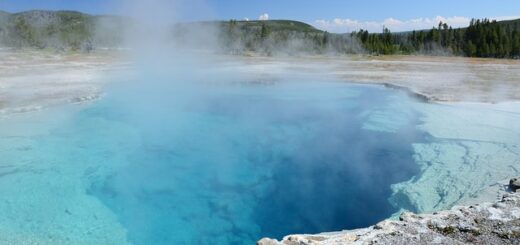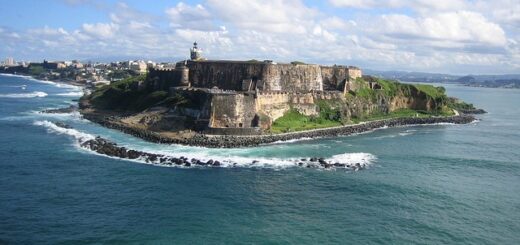Should I Travel During Solar Eclipse?
The solar eclipse is an awe-inspiring phenomenon that you can experience properly only if you’re in the right place at the right time. But for many, it’s difficult to determine whether travel during a solar eclipse is safe or even sensible. After all, we’ve all warned against looking directly at the sun during an eclipse. So, can we travel during solar eclipse? And what should you consider before planning your trip? Can we go out during a solar eclipse?
We’ll explore the essential factors to consider when deciding whether or not to travel during a solar eclipse and provide advice on how to do so safely and efficiently:

What Is a Solar Eclipse?
When the moon comes in front of the sun and blocks the sun’s light from reaching the earth, a solar eclipse occurs. During an eclipse, the moon casts its shadow onto the earth’s surface, and the region covered by the shadow experiences total darkness. Solar eclipses are an exciting natural occurrence and can provide a once-in-a-lifetime experience for observers.
They are relatively rare events, occurring approximately twice a year, so it’s essential to be prepared when one occurs. With the correct planning and preparation, viewing a solar eclipse can be a truly unforgettable experience.
How often does a solar eclipse happen?
As the moon passes between the earth and the sun, it creates a solar eclipse by obstructing the sun’s light from reaching the earth. It occurs due to the orbital motion of each of these bodies and the tilt of the moon’s orbit to the earth’s orbit. The average length of time between eclipses is about 18 months.
However, the time between eclipses varies depending on the type of eclipse. For instance, total solar eclipses are relatively rare, occurring approximately twice a year and closely spaced together. On the other hand, partial solar eclipses occur more frequently and may occur up to four or five times per year in some regions of the world.
Is it safe to travel during a solar eclipse?
Traveling during a solar eclipse is generally safe if you take certain precautions. For example, if you choose to fly during a solar eclipse, it’s essential to be aware of the potential for turbulence due to wind shear caused by the sun’s light blocked.
When driving during solar eclipse, wear protective eye gear and stay off the roads at the eclipse’s peak. You should also be cautious when traveling by boat, as roiling ocean waters might make the journey more difficult.
Is it good to travel during a solar eclipse?
Traveling during a solar eclipse can be a great experience – with the correct planning and preparation. Ensure that you’ve done the research necessary to find a safe location to view the eclipse and are ready for potential weather conditions. With the proper preparation, you can enjoy the spectacular sight of a solar eclipse and create memories that will last a lifetime.
Tips for Traveling During a Solar Eclipse
Traveling during a solar eclipse can be an exciting and rewarding experience, but it requires some planning and safety measures. Here are some tips for traveling during a solar eclipse:
- Know when to travel: Solar eclipses occur only two to five times a year, with a total eclipse occurring every 18 months. Knowing when the next eclipse will occur is essential to plan your travels accordingly. Check the local news or websites to stay updated on when the next eclipse will appear in your area.
- Protect your eyes: You must not look directly at the sun without proper eye protection, such as special-purpose solar filters (eclipse glasses) or hand-held solar viewers. These devices protect your eyes from the sun’s intense rays, and you should use them during the entire duration of the eclipse.
- Know your location: The Moon’s shadow passes across the earth from west to east, so when planning your eclipse viewing, it’s essential to know precisely where you will be when the eclipse is happening. Find out if your region lies in the path of totality and research the local climate conditions.
- Determine your viewing conditions: Not all locations offer the same visibility of a solar eclipse. Determining the best viewing conditions before traveling to a region to witness the event is essential. Factors like air quality, light pollution, and weather can significantly affect the clarity of an eclipse.
- Plan your travel routes: It’s essential to plan for your travel routes during an eclipse, as traffic congestion may increase due to people traveling to witness the event. Plan your travel route accordingly and allow extra time when traveling to an area with a large crowd.
- Plan for lodging and food: Book your accommodations and stock up on items like food and water. With increased demand during the eclipse, finding a hotel or other type of lodging can be difficult.
- Consider flying: Flying during a solar eclipse can be a convenient way to get from one location to another during an eclipse. However, it’s important to remember that buildings and other objects may obscure your view of the eclipse from the sky.
- Follow safety guidelines: Make sure to adhere to local laws and safety guidelines when out and about during the eclipse. Ensure you take the right precautions to protect your eyes from the sunlight. For example, wear protective eyewear and never look directly at the sun without these.
- Bring a camera: Remember to bring a camera! It is a great way to capture the event and share your memories with others. Taking photos can be a great way to remember an event’s details and show the world what you saw through your eyes.
- Enjoy the experience: If you take the necessary precautions, a solar eclipse can be an excellent and life-changing experience. Take the time to properly plan and prepare for the journey and ensure you have all the necessary items to protect yourself and capture the event. Enjoy the event to its fullest and create lasting memories you can cherish for years.
Final Words:
Traveling during a solar eclipse can be a once-in-a-lifetime experience. Proper planning and preparation allow you to enjoy a solar eclipse’s spectacular beauty without risking your safety. While it may take some extra time and effort, the rewards are worth it – memories of a remarkable event you’ll never forget.
Check out our other travel guides to know can we travel during a lunar eclipse?



















